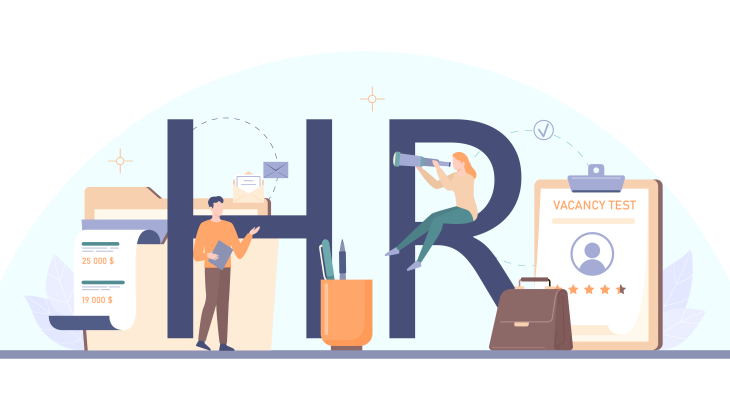Overview
Human Resource management teams are responsible for a wide variety of company and business functions. In the past, the HR department was typically only in charge of administrative functions, such as hiring and benefits, but in the modern workplace, HR management teams are actively involved in the company’s strategic planning as well.
Recruiting
HR departments must create short and long-term recruitment plans in order to attract the best candidates, and these plans must be flexible enough to meet both external and internal changes. For example, if a company is planning to add a new product line or expand into a new market, the HR department must prepare in advance and have qualified candidates ready to start. If a company is not doing well, the HR department must create downsizing plans that will prevent losing valuable company information or resources. In the age of the Internet, HR management teams must adapt to the technological environment and find new, unconventional ways to attract candidates, such as online social networking groups and media.
Retention
When the Baby Boomers entered the workforce, employees typically started and finished their careers at only one or two companies. However, times have changed, and now employees regularly “job hop” to attain higher salaries or promotions. Modern HR departments must seek ways to retain high performers. These methods may include implementing career pathways and plans, teambuilding events and extensive cross-training classes that motivate employees to stay with a company on a long-term basis.
Benefits
Benefits are a major issue for many HR management teams. The HR department must first decide what types of benefits to offer employees, including medical insurance, dental insurance, vision insurance, vacation and personal days and more, while keeping cost and budgets in mind. After deciding what types of benefits the company will offer, the HR department must choose to manage them in-house or outsource them to external benefits companies. Retirement planning is a very prevalent issue for HR departments, including implementing and managing a 401(k) plan.
Generational Differences
According to a 2008 study by the Society of Human Resource Management, generational differences and upcoming Baby Boomer retirements will have a huge impact on companies. The Baby Boomer generation was the largest group of workers in the workplace until Gen Y entered the workforce. Generation X was a smaller group and adapted to the Boomer work style, but Gen Y is larger and wants a greater work-life balance and different types of management styles. HR departments must reconsider traditional dress codes and training programs to accommodate the younger workers. HR departments should also look at nonconventional office setups, flexible hours and telecommuting options to accommodate boomers who are transitioning into retirement.





